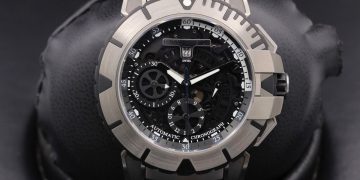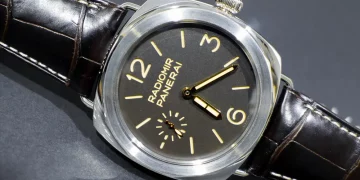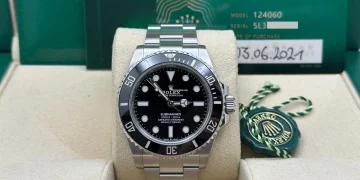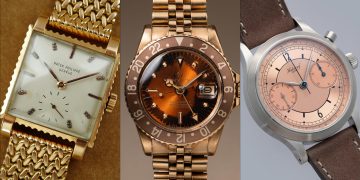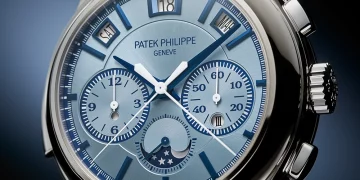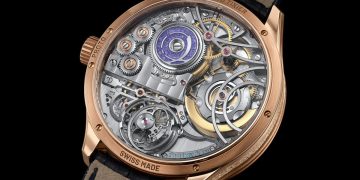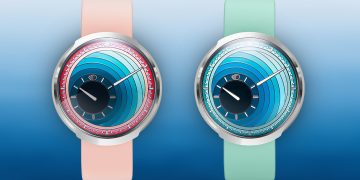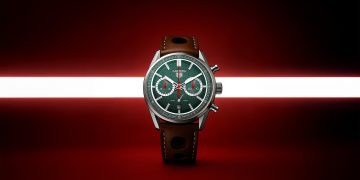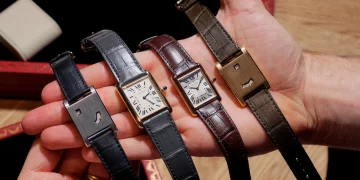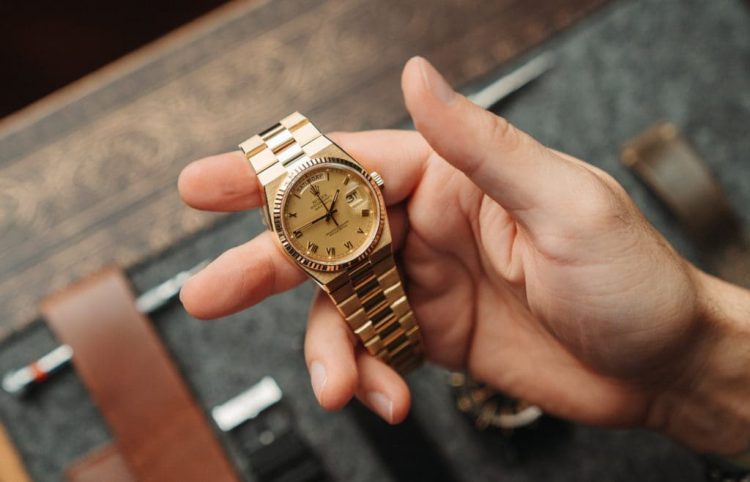Introduction: Watches as Personal Statements
Watches have always been more than just functional tools to tell time. In fact, they have evolved into highly personal accessories, rich with symbolism, and capable of speaking volumes about a person’s identity, values, and social standing. Each timepiece carries with it a specific aesthetic, and often, a deeper psychological meaning that can subtly communicate important aspects of the wearer’s personality, lifestyle, and priorities.
From the sleek and understated designs of dress watches to the rugged and durable qualities of sports watches, every type of watch has its own way of projecting certain traits or values to the outside world. In this article, we will explore the psychology behind these choices and how the timepieces we wear reveal much more about us than we may initially realize.
Watches as a Reflection of Personality
The Unspoken Message of a Watch
When we think about the language of watches, we’re looking at how specific models and styles communicate subtle messages. It’s not just about the brand or the price tag, but rather the aesthetic choices and the practical features that each timepiece offers. These decisions can give insight into how the wearer wants to be perceived, whether that’s someone who values tradition, seeks adventure, or desires to be perceived as a leader.
People often choose their watches based on how they want to be seen by others. Watches, unlike many other accessories, are both highly visible and have a practical purpose, which gives them an extra level of significance. They’re not only an indicator of time, but also of lifestyle, personality, and even social status. Think of it as the “silent language” of accessories—what we choose to wear often reveals much about our core values and beliefs, sometimes without us even realizing it.
The Role of Design: Minimalism vs. Intricacy
One of the most interesting aspects of watches as personal statements is how they can reflect the wearer’s personality through design choices. For example, minimalistic timepieces like the Junghans Max Bill or Nomos Glashütte often appeal to those who appreciate understated elegance and simplicity. These individuals may prioritize clarity, focus, and a refined aesthetic. They value functionality over flair and are likely to have a no-nonsense approach to life.
On the other hand, intricately designed watches, such as those produced by Patek Philippe or Audemars Piguet, often appeal to individuals who appreciate craftsmanship, luxury, and attention to detail. These wearers might identify with a sense of heritage or tradition and want to convey an image of refined taste and sophistication. The complexity of a watch can often mirror the complexity of the person choosing it—a lover of both art and function.
The Psychology Behind Watch Choices
The Symbolism of Brand Loyalty
One of the most significant elements of watch selection is brand loyalty. Watches, particularly luxury timepieces, often carry a sense of status, and the brand you choose to wear can be a powerful reflection of your identity. For example, wearing a Rolex can signal a desire for success and achievement. The brand is often associated with ambition, perfectionism, and an admiration for the timeless classics. A person who wears a Rolex may be seen as someone who is accomplished and someone who has reached the pinnacle of personal or professional success.
In contrast, someone who chooses to wear a Casio G-Shock or a Seiko 5 might want to project a sense of practicality and functionalism. These watches, known for their durability and affordability, are often favored by individuals who value reliability over luxury and precision over indulgence. This choice may appeal to a personality that values pragmatism, reliability, and a no-frills approach to life.
Watches as Indicators of Personal Values
Wearing a specific brand or style can also reflect personal values. Consider, for example, the increasing popularity of eco-friendly and sustainable watch brands such as WeWOOD or Nordgreen. Individuals who choose these types of watches are likely to be environmentally conscious and inclined to reflect their ethical values through their accessories. These choices can signify a strong commitment to sustainability, minimalism, and social responsibility.
Similarly, luxury Swiss watch brands, known for their centuries-old craftsmanship and intricate detailing, are often associated with a wearer who values precision, heritage, and legacy. For these individuals, their choice of watch may be a statement about their respect for tradition and their preference for quality craftsmanship that stands the test of time.
How Different Watch Types Speak to Different Personalities
The Classic Dress Watch: Elegance and Refinement
For many, the classic dress watch symbolizes a timeless sense of elegance and refinement. These watches are typically designed with minimalistic dials, leather straps, and slim profiles, reflecting a person who wants to be seen as polished and sophisticated. A person who wears a dress watch, such as a Jaeger-LeCoultre Master Control or a Vacheron Constantin Patrimony, often values subtlety over flashiness, quality over quantity, and taste over trends. These individuals often work in corporate or professional environments and prefer accessories that complement their polished personal style without drawing too much attention.
The Sports Watch: Action-Oriented and Adventure-Seeking
Sports watches, such as the iconic Rolex Submariner or the Omega Speedmaster, convey a sense of adventure and resilience. Individuals who choose these timepieces often see themselves as action-oriented, goal-driven, and ambitious. These watches are designed to withstand extreme conditions, making them popular among people who engage in extreme sports or value rugged durability. They are also associated with people who are self-assured and who appreciate functionality without compromising on style.
The choice of a sports watch may reflect a person’s desire to live life on their own terms, constantly pushing boundaries and taking risks. They may be seen as someone who enjoys a lifestyle full of adventure, is highly competitive, and relishes the opportunity to achieve greatness. The watch serves as both a tool and a symbol of their active, dynamic lifestyle.

The Luxury Watch: Success and Prestige
On the other end of the spectrum, individuals who choose to wear luxury timepieces like Audemars Piguet, Patek Philippe, or Richard Mille may be signaling a desire for status, wealth, and prestige. These watches are not just about telling time but about making a statement—I have arrived, and I have succeeded. These timepieces, often priced in the hundreds of thousands, are designed to attract attention, and they often signify a life of privilege and affluence.
Wearing a luxury watch can reflect a personality that is not afraid to show the world their success, someone who believes that luxury and quality are not just for special occasions but for everyday life. It’s a clear message to the world that this person values high-end craftsmanship, exclusivity, and the finest things in life.
The Smartwatch: Modernity and Innovation
The rise of the smartwatch—epitomized by the Apple Watch—reflects a shift toward a more technology-driven society. Wearers of smartwatches are typically tech-savvy, forward-thinking, and innovative individuals who value convenience and modernity. The smartwatch appeals to those who want a timepiece that does more than just tell time—it’s about staying connected, tracking fitness, and enhancing productivity.
A smartwatch wearer is likely to see themselves as someone who is practical, efficient, and adaptable. They appreciate the cutting-edge technology and the convenience that smartwatches provide, all while still being a fashionable accessory. These individuals are often millennials or Gen Z professionals who embrace technology in every aspect of their lives.
The Cultural Significance of Watch Choices
Watches as Status Symbols
In many societies, particularly those that value affluence and status, the type of watch a person wears can serve as a visual indicator of their position in the social hierarchy. The higher the price of the watch, the more it can signal wealth, taste, and success. A luxury watch is not just a tool for telling time—it’s a statement of privilege, achievement, and high social standing.
The psychological connection between watch choices and status symbols has long been rooted in society. Watches are visible and often easily recognized, making them an ideal tool for individuals looking to communicate their wealth and influence without words. In many ways, the choice of a watch can be seen as an expression of cultural values surrounding power, prestige, and ambition.
Watches as Personal Legacy
Watches are often passed down from generation to generation, becoming heirlooms that carry not just monetary value but emotional significance. The watch you wear can represent more than just who you are now—it can also reflect your family’s legacy or your own desire to leave a lasting mark. In this sense, watches are a symbol of continuity, a tangible connection to past generations, and a reflection of future aspirations.
Conclusion: Watches as Personal and Cultural Statements
The watch you choose to wear speaks volumes about your personality, values, and social status. Whether you prefer a classic, understated timepiece, a rugged sports watch, or a luxury icon, your choice is a reflection of how you see yourself and how you wish to be seen by the world. Watches have transcended their function as timekeeping tools and have become powerful symbols of identity, social standing, and personal legacy.
In the ever-evolving world of horology, each timepiece carries with it a unique language, capable of conveying both silent and loud statements about who we are, what we value, and how we wish to interact with the world around us.



